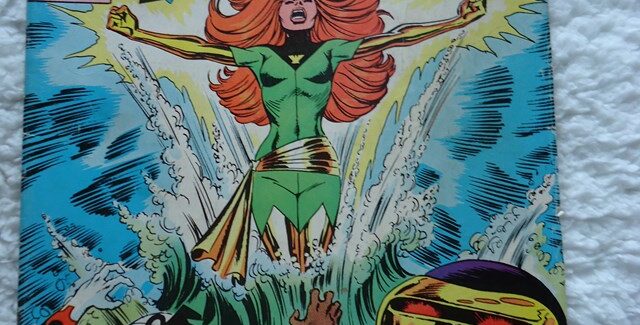Cracking The Publishing Code
Those of us who make creator-owned comics may harbor dreams of seeing our creations alongside The Walking Dead, Teenage Mutant Ninja Turtles, Men In Black, The Crow, or other independent comics that have become a part of the cultural zeitgeist. For the most part though, we just want one thing. We want people to read our comics. A pile of cash would be really nice, too, but mostly we’re making books in hopes that they’ll be read and enjoyed. Ideally by as many people as possible.
 The question that plagues us is how. How do we get people to buy and read our books? How do we get people to take a chance on us? How do we overcome all of the resistance to trying something new? Let’s face it, it’s hard. It’s hard to break through. It’s hard to get noticed. We all want to believe that someone somewhere has cracked the code. Someone has figured out how to make it work. Someone has a connection to the audience. Someone has that answer to the mystery. Someone knows the secret that eludes us.
The question that plagues us is how. How do we get people to buy and read our books? How do we get people to take a chance on us? How do we overcome all of the resistance to trying something new? Let’s face it, it’s hard. It’s hard to break through. It’s hard to get noticed. We all want to believe that someone somewhere has cracked the code. Someone has figured out how to make it work. Someone has a connection to the audience. Someone has that answer to the mystery. Someone knows the secret that eludes us.And there’s alway someone willing to tell you that they are that person. They’ve figured it all out. They’ve got the key. They can give you the audience you seek. They can do it for you. All you’ve got to do is sign their contract and give them control of your property. I’ve been working in comics since the early 90s and I’ve seen this movie a dozen times over. Someone crops up out of nowhere and they talk a damned impressive game. They’ve got answers. They’ve got money behind them. They’ve got a plan—even though the details are often murky or intentionally vague, but don’t you worry about that. It’ll work. They’ve got this and you can get in on the ground floor. They’re going to give you everything you’ve ever wanted. All you’ve got to do is sign their contract and give them your comics. They’ll take care of everything else.
As in all things, Caveat Emptor applies here.
 This is the comic book industry equivalent of a pyramid scheme. It may seem to be working for a while, but it always —inevitably— collapses. That person who cracked the code, who talked such a good game, who made you all those promises, that person you trusted suddenly disappears, leaving behind a pile of broken promises, anger, bitterness, damaged reputations, money owed, and readers who paid in advance never getting the comics they shelled out for.
This is the comic book industry equivalent of a pyramid scheme. It may seem to be working for a while, but it always —inevitably— collapses. That person who cracked the code, who talked such a good game, who made you all those promises, that person you trusted suddenly disappears, leaving behind a pile of broken promises, anger, bitterness, damaged reputations, money owed, and readers who paid in advance never getting the comics they shelled out for.This is not to say that there aren’t legitimate publishers out there. There most certainly are. Not many, but they do exist. Here’s how to tell the difference… a legit publisher is not going to oversell you. They’re not going to promise you the sun and the moon. A legit publisher knows the market and they’re going to speak to you about it with realism, the terms will be clearly defined. Likely, those terms will suck. They’ll be fair, but they’ll suck nonetheless. That’s the realism part I was talking about. But mostly, you’ll be able to recognize a legit publisher by their willingness to put some skin in the game.
If the deal you’re offered requires you to do all of the work, all of the promotion, and take all of the risk, while the publisher only collects and distributes the rewards —paying themselves first— you don’t really have a publisher. You have a parasite.
There are no shortcuts, folks. It’s hard work. It’s long hours and the rewards are few and often far between. We spend weeks, sometimes months, crafting something that will take a person ten minutes to read. That’s the nature of this thing we love.
We want to believe that there is strength in numbers, that if we band together with others doing what we do, then we can share in —and even grow— the rewards. I get that. It’s natural to want to be a part of something bigger than ourselves. All I’m saying is keep your eyes and ears open, and question EVERYTHING … especially those folks who come along telling you that they’ve cracked the code.
Tags: Amazon, Amazon KDP, Artists, comics, Creators, Promotion, Publishing, Writers






